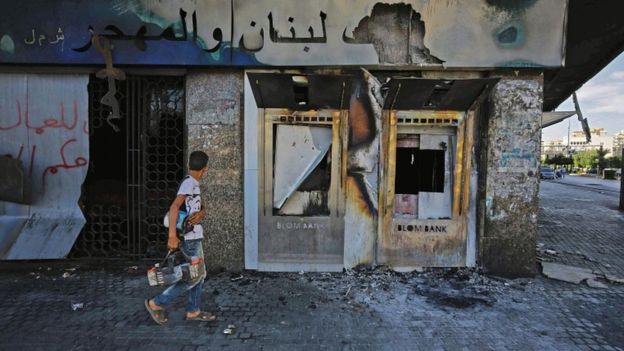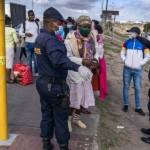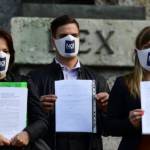Several individuals have rampaged in urban communities across Lebanon in the midst of heightening protests as the country faces a collapse in its currency.
Outrage has flooded as the Lebanese pound tumbled to record lows, having lost 70% of its incentive since October when protests started.
The executive has assembled a crisis bureau cabinet meeting to discuss the economic crisis
The protests stopped during coronavirus lockdown yet as of late continued.
The deterioration of the Lebanese pound has plunged the country into its worst economic crisis in decades.
Numerous Lebanese residents who depend on hard currency savings have fallen have fallen into destitution, their situation compounded by the pandemic.
On Thursday, night demonstrators who had gathered in the city center vented their annoyance, setting flames and blocking streets. While for the initial barely any months fights called for political change, presently they are driven by despair over hunger.
Joblessness is high and most Lebanese who accomplish work are paid in neighborhood cash which has lost its worth, making food and other basic goods unaffordable for many families.
One dissenter stated: “Lebanon has consistently been disordered, and it appears our endeavors won’t [bring about] any change, so let it be even more chaotic.”
Yet, many state the temperament helps them to remember the period before Lebanon imploded into common war in 1975 and the worry is about what happens next as strains keep on spiral.
In the northern city of Tripoli, soldiers deployed to try to restore calm were pelted with rocks thrown by protesters. Petrol bombs were also hurled at banks, which have been blamed for Lebanon’s financial troubles.

Numerous streets outside Beirut are as yet blocked.
“We came down to the lanes since all that we requested on 17 October [2019, when fights emitted in Lebanon] didn’t get accomplished,” a demonstrator in Beirut, Manal, told Reuters. “They got us a prime minister who is worse than the one before.
“Today, the dollar has arrived at 7,000 Lebanese pounds. We can’t bear to eat or pay lease or anything like that. We will stay here until the dollar rate goes down and until all our demands are met.”
Even before coronavirus hit, Lebanon was experiencing the worst economic crisis in the country’s history, which triggered large anti-government protests late last year.
While the authorities have been praised for their reaction to the infection, practically a large portion of the nation’s 6,000,000 individuals are presently living below the poverty line.
The deterioration of the cash has prompted widespread swelling in a nation that depends on imports.
The Lebanese government is in talks with the International Monetary Fund, but any bailout is expected to involve painful economic reforms, in a country built on a sectarian political system that is likely to face stiff resistance from the entrenched parties.
Hundreds, if not a great many organizations, have gone belly up, and in excess of 33% of the populace is jobless. In March, Lebanon defaulted on an outside obligation installment without precedent for its history.
This article is originally posted on bbc.com


